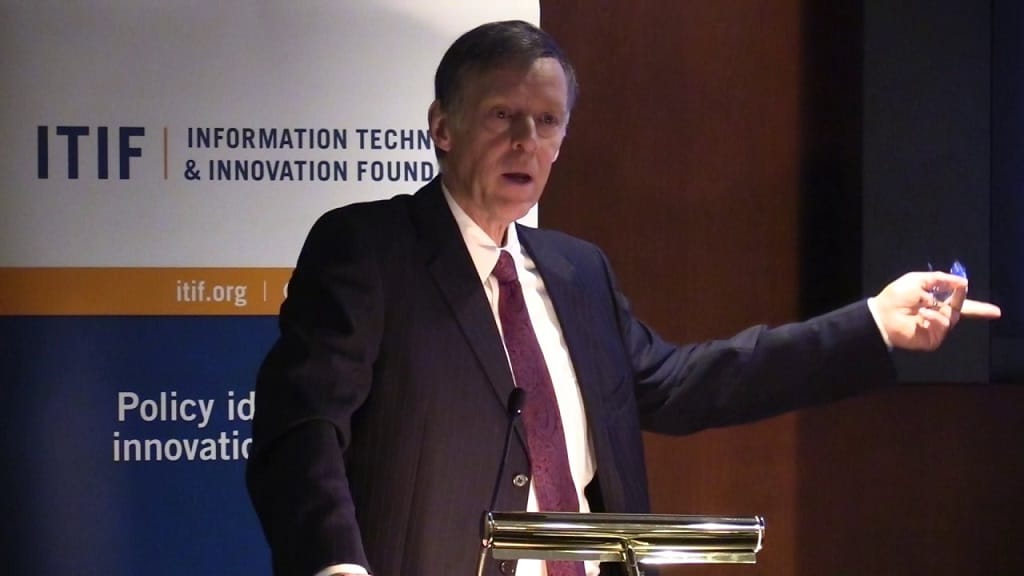ITIF’s Atkinson Urges Strategic Policies for U.S. Technological Superiority
Panelists argued that the federal government needs to institute policies for growth in strategic technology industries.
Theadora Soter

WASHINGTON, January 12, 2022 — Panelists on an Information Technology and Innovation Foundation event warned Tuesday about China’s rise as a technological superpower that requires the U.S. to step up or get usurped.
Rob Atkinson, president of the ITIF said as other countries like China advance in technology, America becomes more susceptible to falling behind. What’s required, he said, are policies that make space for adequate production and innovation for key industries, like chip manufacturing, inside the country. “Policymakers need to accept that while market forces should continue to guide non-strategic industries, for strategic industries government needs explicit sector-based strategies implemented through industry-led public-private partnerships,” according to a January 3 article by Atkinson on the ITIF website.
Past are the days that the federal government focused almost solely on defense and weapons and now is the time for it to focus on leading in sectors including drones, autonomous systems, artificial intelligence, quantum computing, biotechnology, energy storage systems, lasers, optical equipment, space technology, machine tools, shipbuilding, and advanced wireless systems. The article notes the Senate did pass the U.S. Innovation and Competition Act, which provides money for technology research over five years, but it now awaits House votes.
Atkinson’s thesis became a point of discussion at an ITIF event on Tuesday.
“We need to make sure these industries are competitive,” said Mike Brown, director of the Defense Innovation Unit under the Department of Defense. “The US is in the position to have breakthroughs in technology that are going to allow prosperity both economically as well as national security.
“China is using all instruments of national power to allocate capital, determine what industries are strategic and replace us as the technology superpower,” said Brown.
When Erica Fuchs, a professor at Carnegie Mellon University, suggested possible collaboration between America’s technology industry and China’s, Atkinson said he was “skeptical of the fact that we ever learn much from China. I think it’s 95% the other way.”
A majority of the panelists agreed that China aims to displace America in the race to technological advancements, and that there will be consequences if they do. “If China does displace us, our standard of living is going down,” Brown said.








Member discussion